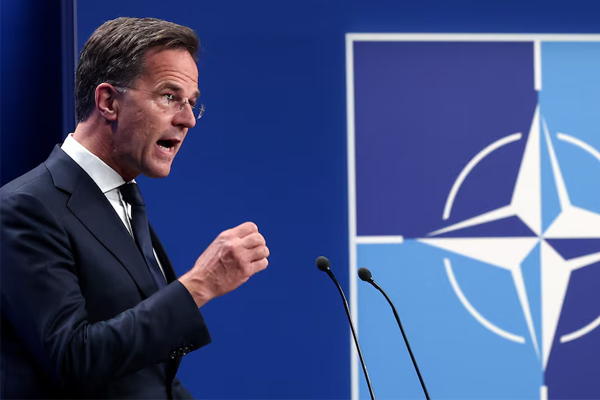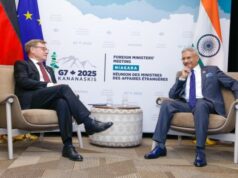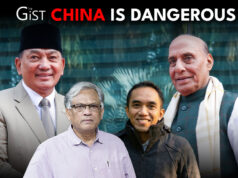
India on Friday described as “factually incorrect and entirely baseless”, a claim by NATO Secretary-General Mark Rutte to CNN, that Prime Minister Narendra Modi had spoken with Russia’s President Vladimir Putin about the Ukraine conflict.
“At no point has Prime Minister Modi spoken with President Putin in the manner suggested. No such conversation has taken place,” said MEA spokesperson Randhir Jaiswal, during a weekly briefing.
“We expect the leadership of an important and esteemed institution like NATO to exercise greater responsibility and accuracy in public statements. Speculative or careless remarks… are unacceptable.”
New Delhi warned that misrepresenting high-level diplomatic engagements risks undermining trust between international institutions and sovereign states.
What Rutte Claimed
Rutte linked the U.S. tariff hikes to India’s Russia policy, claiming that India was now urging Moscow for explanations.
“Delhi is on the phone with Putin, and Narendra Modi is asking him to explain his strategy on Ukraine because India is being hit with tariffs,” Rutte alleged.
The statement came as a surprise, not just because of its substance, but because no such call had been reported, verified, or even hinted at in any diplomatic channel.
India’s response was swift, unequivocal, and strategic, not only refuting the claim but sending a broader message: that international institutions cannot afford to play fast and loose with facts.
Pressure From Washington
Rutte’s remark coincides with rising tensions over India’s energy ties with Russia — especially after U.S. President Donald Trump doubled tariffs on Indian goods, citing New Delhi’s continued Russian oil imports.
Just last month, Trump raised the levy to 50%, declaring it a penalty for India’s energy partnership with Moscow.
The issue has triggered a wave of commentary from U.S. officials. Energy Secretary Chris Wright reiterated American discomfort over India’s oil purchases from Russia.
“I’m a huge fan of India… But it is also buying Russian oil. We want to end the Ukraine war, and I believe India also wants that,” Wright said in Washington. “That oil funds the war. And that’s the friction.”
Wright also stressed that the U.S. wants to expand energy cooperation with India, in natural gas, coal, nuclear, and clean fuels, but hinted that ongoing Russian oil imports complicate that ambition.
India’s Position
India has repeatedly defended its energy relationship with Russia as a pragmatic decision driven by economic security, not ideological alignment.
“India’s energy imports are meant to ensure predictable and affordable energy costs to the Indian consumer,” the MEA reiterated. Adding, “India will continue taking all necessary measures to safeguard its national interests and economic security.”
New Delhi has long maintained a policy of strategic autonomy, refusing to be drawn into geopolitical camps while advocating diplomacy and dialogue as the only path to resolving the Ukraine crisis.
Trade Talks Continue
Even as tensions over tariffs and energy policies simmer, India and the U.S. are keeping trade dialogue alive. Following high-level meetings earlier this month, both sides agreed to push for an “early and mutually beneficial” conclusion of the bilateral trade agreement.




